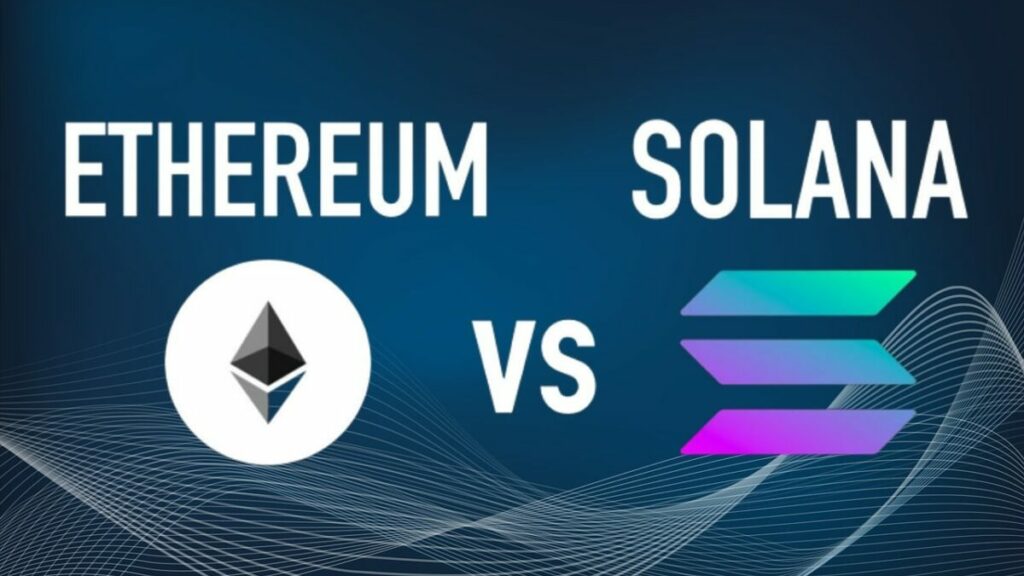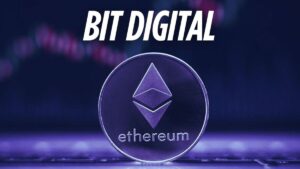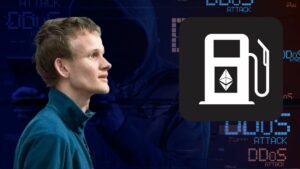Decentralized finance (DeFi) has boomed over the past years picking up an exponential growth since the mid 2020. As it gears up to take on the centralized banking and finance sector, two of the largest blockchains for decentralized activity and non-fungible tokens (NFT) – Ethereum (ETH) vs Solana (SOL) are at loggerheads to grab the trophy for the best altcoin.
Both the digital tokens have racked up a substantial valuation among the top cryptocurrencies with several upgrades lined up on their respective roadmaps. While Ethereum has been one of the oldest and most used blockchain platforms, it is the second-most-popular cryptocurrency after Bitcoin (BTC), Solana has been touted as the “Ethereum Killer”, providing faster and better transactions for the users.
Let us delve in a little further to find out if Solana is better than Ethereum or the other way around.
Main differences between Solana and Ethereum
Amidst a constant conflict for the title of the best altcoin, it is becoming increasingly common to hear investors and developers weighing in their options between Solana vs Ethereum. Although both Ethereum and Solana are powerful blockchains, each platform has some major advantages as well as disadvantages that help the platform to stand out. In order to compare Solana vs Ethereum, let us segregate both the platforms under some basic features.
Decentralization
Solana is a high-performance decentralized blockchain built with the goal to enable the scalability of decentralized applications (dApps). It is one of the fastest-growing ecosystems in the world, with thousands of projects including DeFi, NFTs and Web3.
On the other hand Ethereum has been a major leader in terms of blockchain platforms powering thousands of decentralized transactions. Ethereum is more popular in the category of decentralization with over 2,900 dApps running on its platform whereas Solana has about 350.
Processing speed
Ethereum can process approximately 13-15 transactions per second. However, there are several Ethereum scaling platforms such as Polygon that helps to increase the number of nodes in the network, enhancing the transaction load.
On the contrary, Solana, does not need Layer-2 solutions to speed up its transactions. It uses a Turbine block propagation protocol that breaks data into smaller fragments which in turn, makes data transfer across the network an easy task. The entire mechanism helps the blockchain perform at a whopping 65,000 transactions per second.
Transaction time
One of Solana’s key advantages compared to Ethereum is that it doesn’t have a waiting period between processing a transaction and confirming it on the blockchain. While Solana transactions are capable of being accepted almost instantly, Ethereum has a waiting period spanning around four to five minutes.
Because transactions require less time to process, Solana is a more eco-friendly solution in comparison to Ethereum’s gas-hungry blockchain, making the efficiency of SOL even more attractive. The Solana blockchain has a block time of 0.4 seconds and a block size of 20,000 transactions, compared to Ethereum’s block time of 13 seconds and block size of only 70 transactions.
Transaction fees
Ethereum is infamous for its notoriously high gas fees compared to Solana. The ETH transaction fees are quite high with users have to pay $2-$6 for just 1 transaction, depending on network traffic.
Conversely, one of the key advantages of Solana is its pricing offering a transaction fee of just $0.00025 per transaction. Solana is also the most inexpensive chain to drop NFTs. For comparison, the cost of deploying smart contracts on Ethereum is around $5,000+, whereas it is a meagre $30 on Solana.
Security
Security has been a major concern when it comes to cryptocurrency, and it’s an important consideration when comparing Solana and Ethereum. With the recent software upgrade “Merge”, Ethereum shifted to Proof-of-Stake (PoS) consensus that will be a financial incentive against the temptation to validate fraudulent transactions.
Solana, on the other hand, uses a Proof of History consensus mechanism. While this mechanism allows for considerably faster processing speeds, those speeds come at a cost. Unfortunately, Proof of History doesn’t provide the same level of security.
Staking: Solana vs Ethereum. Which is more profitable?

Crypto staking is a process that involves “locking up” a portion of a user’s cryptocurrency for a period of time as a way of contributing to the blockchain network. In exchange, the stakers can earn rewards, typically in the form of additional coins or tokens. In a nutshell, it is a way of earning passive income.
Ethereum (ETH) takes the trophy for the most staked crypto asset following the successful Merge of the Beacon Chain consensus layer with the Ethereum execution layer in 2022. On-chain ETH staking yields are currently around 4% APY.Hot on heels is Solana (SOL) with the second-highest staking transaction market cap of $12.7 billion.
As per analytics firm Nansen, most of the ETH currently staked is not profitable at current Ethereum prices.
Meanwhile, Solana (SOL) offers delegated proof of stake where tokens are delegated to validators running nodes. The Ethereum Killer staking has historically yielded around 5.5% annual percentage yield (APY). More than 16.5 million ether, worth $27.7 billion, has been staked since Beacon Chain went live in December 2020, of which 31% or 5.115 million ETH are in profit while the rest, 11.385 million ETH, are in loss.
Which Ecosystem is better for DeFi, Solana or Ethereum?
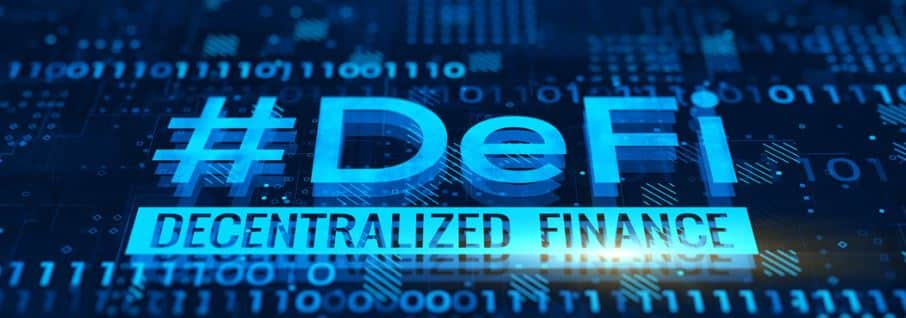
Ethereum is unquestionably the reigning champion in this category, as its ecosystem has been expanding and maturing for years. With a large developer community, robust development tools, and frameworks, Ethereum provides developers with a vast array of options for building decentralized applications and smart contracts. It is home to some of the most innovative and successful Blockchain projects, including Uniswap, Compound, and MakerDAO.
At the same time, Solana, has focused on enticing programmers who wish to create high-throughput and high-speed applications, such as DeFi and NFTs. It has already established partnerships with a number of decentralized projects, including Serum, Mango Markets, and Degenerate Ape Academy, which are attracting developers and users to its platform. Developers are beginning to take notice of Solana’s unique features, such as its lightning-fast transaction speed and scalability.
In the NFT sector, Ethereum has continued to dominate, with OpenSea and Rarible being two of the most prominent NFT marketplaces. This platform has seen the rise of Axie Infinity and Gods Unchained. Uniswap and SushiSwap are two popular DEXs that use Ethereum. Because of its smart contract capabilities and established ecosystem, it has become the platform of choice for the creation of decentralized exchanges (DEX).
Alternatively, Solana has been gaining impressive traction as a platform for NFT marketplaces and games. It has collaborated with a number of NFT initiatives, such as Degenerate Ape Academy, and gaming projects, such as Star Atlas, to provide consumers with unique gaming experiences. Solana is also quickly gaining popularity as a DEX platform, with Serum being one of the most promising regimens.
SOL vs ETH: Which Cryptocurrency Should I Invest In?
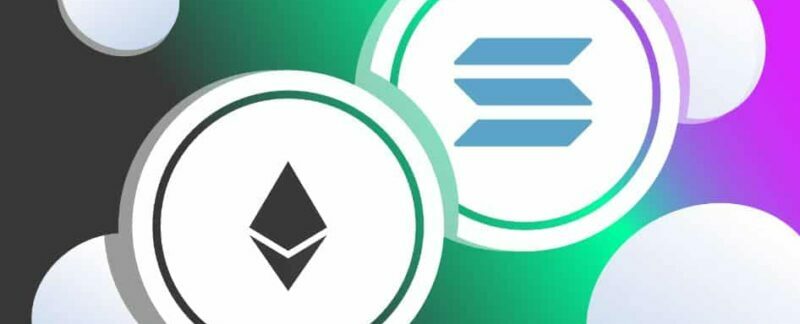
Both Ethereum and Solana can be excellent investment opportunities. However, it difficult to compare the two cryptocurrencies or two platforms and definitively say that one is better than the other. It’s clear both Ethereum and Solana have major selling points.
Ethereum boasts long-term stability and security, along with its robust smart contract capabilities. It also has a higher trading price and more proven success as an investment. The Ethereum network is also gearing up for the next big upgrade dubbed Shanghai which aims to add new functionality. The software upgrade will separate code and data, helping Layer 2s handle smart contract code easier and quicker. This in turn will boost new smart contract functionality lowering gas fees even further.
Solana, on the other hand, has the edge when it comes to speed and scalability. Solana Mobile will soon make available the cutting-edge new phone from Solana, called Saga and would come pre-installed with a dApp store. The dApp store was intended to serve as a single hub through which users could access all of the decentralized applications available on the Solana network. The recent SOL rally came after Helium Network announced its migration to Solana. Solana also intends to upgrade its network by introducing new features, such as Solana Wormhole, a cross-chain bridge, and by allowing more developers and projects to utilize its platform.
The Helium network is migrating from its current L1 to Solana at the end of March, bringing with nearly 1 million hotspots worldwide across the LoRa and 5G networks 🔥https://t.co/Bn847ghLik
— Solana (@solana) February 20, 2023
While, Ethereum has been around longer and has experienced explosive growth, Solana is not far behind prices jumping over the past few days. Which cryptocurreny to invest in right now? It depends on the individual investment style. Investors looking for less risk may feel more comfortable choosing market leader Ethereum. But for those willing to take on a bit more risk, Solana might be the best bet.
Recap: Comparative Table Ethereum vs Solana
| Ethereum (ETH) | Solana (SOL) | |
| Launch Date | 30 July 2015 | 16 March 2020 |
| Max. Token Supply | Infinite | Infinite |
| Consensus Mechanism | Proof-of-Stake (PoS) | Proof-of-History / Delegated Proof-of-Stake (PoS) |
| Transactions Fees | $2-$6 (depending on network traffic) | $0.00025 per transaction |
| Transactions Per Second | 15 | 65,000 |
| Programming Language | Solidity | The primary Solana programming language is Rust, but C, C++, and even Python are supported. |
| Web | https://ethereum.org/en/ | https://solana.com/ |
Conclusion
It can be concluded that Ethereum has a stronghold over the DeFi and NFT market with developers still preferring Ethereum. However, as the crypto competition heats up, Solana has jumped on the popularity bandwagon at a very short span of time. Therefore it can be safe to say, if someone is looking for the most dependable platform with security and features, it would be Ethereum. However, if they are looking for affordability and faster speeds, Solana is a better option.
Crypto Economy reviews and comparisons are for informational purposes only and should not be taken as investment advice. If you want to invest in cryptocurrencies, do so at your own risk and do your own research beforehand.



